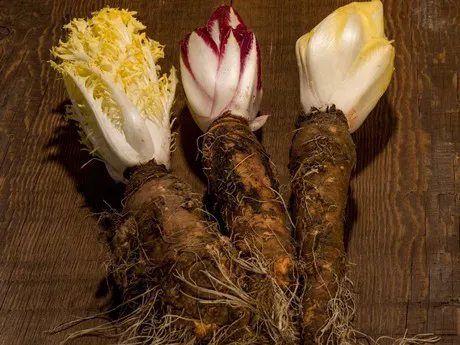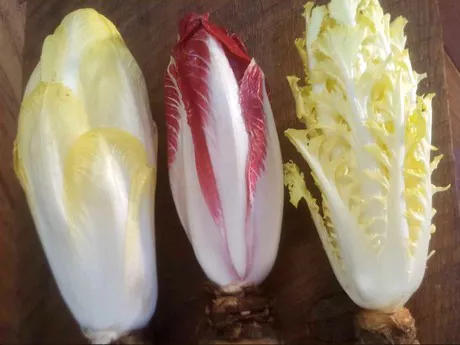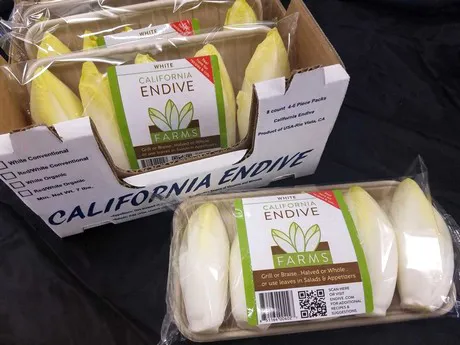The organic and foodservice sectors are two areas where Belgian endive producers in California are seeing great opportunities. They say this is because endives are already considered a specialty item, so adding organic certification further increases the value of the product.
"The organic endive category is really booming, increasing by 30 percent just in the past year," said Mike Reed of California Endive Farms. "Offering pre-packed organic endives offers many solutions to retailers and we have seen a positive response. Because of the way endive production works, we have already planned things for next year, and organic availability has been increased."

Most of the endive business is in foodservice
In a similar vein, foodservice operators are showing an increased interest in endives, according to Reed. This is especially the case for high-end restaurants looking to add something special and unique to their dishes. In fact, Reed said that 65 percent of endive business is through the foodservice sector.
"Endives are more commonly found in the foodservice arena, where we are seeing it used in high-end restaurants, for pairing with wine and also for operators looking to offer something unique. We are seeing a lot of interest and a lot of room for growth. Right now, we are working with a top restaurant chain that is looking to introduce a salad blend with endive in it."

Production is planned a year in advance
Belgian endives are grown in a very particular way to achieve the preferred color as well as year-round supply. The method has been used extensively in Europe, and California Endive Farms follows a similar system. The seeds are first sown into the fields in late spring to early summer. Once they grow for several months, the tops are cut off in the fall and the roots are harvested and stored in 28 degree temperatures and "exposed to blowing snow and wind," as Reed explained. "They need to receive around 220 chill hours which makes for a healthy and firm root." The cold conditions cause the root to become dormant until the time comes to expose the root to Spring-like conditions where it will render a second growth providing the endive, according to production requirements.
"We produce a crop every week," Reed said. "We also grow at different elevations and in different fields across southern Oregon and Central California, to ensure an even broader span of availability. After the roots are harvested and stored, when ready, we put them in a growing tray with a water solution, and expose them to spring like conditions - temperatures in the 50s along with high humidity. After three weeks, the endive heads have fully grown out of the root and are ready to be harvested and packaged. All this is done in complete darkness in order to maintain the yellow color and avoid any additional bitterness."

New pack launched this month
California Endive Farms is launching a new package design this month at both the Organic Produce Summit and the PMA Foodservice convention. As stated earlier, organic and foodservice are both seen as growth categories for endive and therefore the launch of the new packaging option at these shows is timely.
"We are introducing a new 1lb pack which will be showcased at both events," Reed shared. "The new 1lb pack can be used by both retail customers and wholesale distributors. On the retail side, there has been interest from club stores. Wholesale distributors meanwhile, typically sell endive in a 10lb configurations. A 1lb package provides flexibility and is a good option for foodservice customers to experiment without the outlay of a larger pack."
California Endive Farms will be at Booth #915 at the PMA Foodservice convention in Monterey.
For more information:
Mike Reed
California Endive Farms
Ph: +1 (707) 375-1112
www.endive.com
